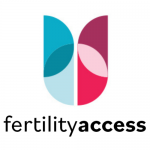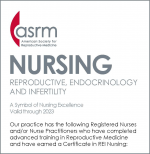When the thought of having a baby is on the horizon, folic acid is vital to a healthy pregnancy. Think of folic acid as the “superpower” of B-vitamins. Not only is it necessary for cell growth, it’s known to help prevent certain birth defects. According to the National Birth Defects Prevention Network, if taken before and during early pregnancy, folic acid can prevent up to 70% of some serious birth defects of the brain and spine.
How much folic acid do you need?
Even if you’re not planning to start a family, folic acid is vital to helping the body make new cells every day. These new cells nourish the blood, skin, hair, nails and other organs and systems of the body.
If you are planning to become pregnant, take note. The CDC and the U.S. Public Health Service recommend that women between the ages of 15 and 45 take 400 micrograms (mcg) of folic acid per day. Consuming this amount BEFORE you become pregnant is the most effective way to prevent birth defects of the baby’s brain (anencephaly) and spine (spina bifida).
Why start taking folic acid BEFORE pregnancy?
Almost half of all pregnancies in the United States are unplanned. For many women, by the time they find out they are pregnant, it could be too late to prevent birth defects. And since anencephaly and spina bifida develop within the first few weeks of pregnancy, it’s important to have enough folic acid in your body prior to becoming pregnant. It’s also crucial to continue consuming those folic acid each day in the early stages of pregnancy.
Sources of folic acid
“How do I get folic acid?” you might ask. The surefire way is to take a daily multivitamin with folic acid in it. Here’s why: Foods naturally rich in folate are not ideal sources of folic acid. In fact, research shows that the body absorbs folic acid from supplements much better than from naturally occurring folate in certain foods. In addition, folate can be drastically diminished when storing or cooking food.
Still, if you’d like add to your supplement, the folic acid-rich foods below include other beneficial nutrients, healthy fats and fiber:
- Lentils and dried beans
- Peas
- Nuts
- Avocado
- Broccoli
- Spinach
- Collard or turnip greens
- Okra, Brussels sprouts and asparagus
- Citrus fruit and juice
Even though countless pregnancies are unplanned, tens of millions of couples struggle to conceive each year. At the Center for Reproductive Medicine in Minneapolis and St Paul, our specialists are dedicated to helping you achieve a healthy pregnancy. From diagnostics to the most advanced fertility treatment options, you’ll receive complete support to realize your dream of starting a family.
To learn more or schedule an appointment, call 612-863-5390 or click here to fill out and submit our online new-patient form.






